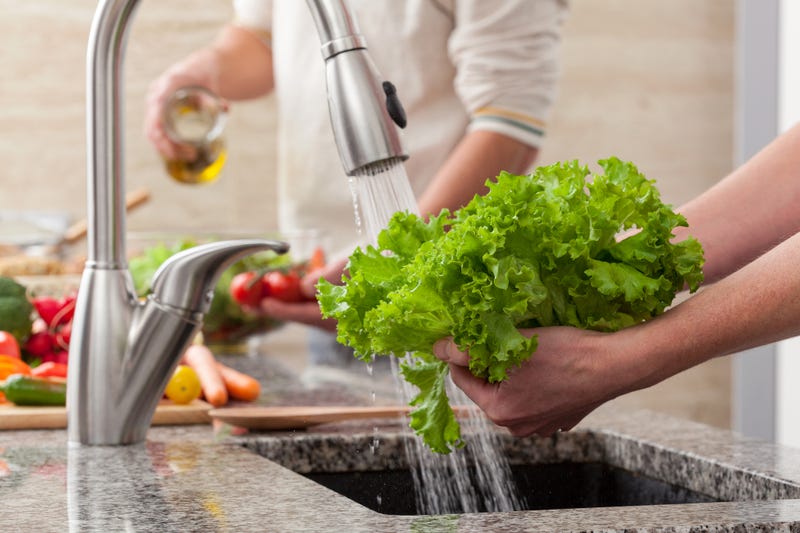
How often do you wash vegetables before eating or cooking them? According to a new study, you should never skip giving your vegetables a rinse -- especially if they were grown in an urban garden.
Researchers say washing veggies can effectively remove any traces of lead, which is more commonly found in urban soil used by growers in big city settings. Lead is a neurotoxin that can damage multiple organ systems.
"It is incredibly important to know if urban gardeners are being exposed to lead when they consume their produce," Sara Perl Egendorf, a researcher at Cornell University, told the American Society of Agronomy.
A study led by Egendorf determined that washing removed up to 97% of lead traces from lettuce, and that any form of washing tended to work.
The study, published in the Journal of Environmental Quality, focused on lettuce grown in soils containing either high or low levels of lead. The team chose lettuce because leafy greens trap soil particles. Researchers used an urban community garden in Brooklyn, New York and a rural field site in Ithaca, New York.
"Our results show that washing can remove 75–94% of lead from lettuce," the study states. "It was estimated that washing removed 97% of lead deposited by splash, which is the dominant source of lead, and removed 91% deposited by downward deposition," which refers to lead particles in the atmosphere.
The researchers also tested different washing strategies to determine if one was more effective than another. The strategies included rinsing with tap water, soaking in water, soaking in vinegar, and soaking in a commercial vegetable wash solution.
The study determined that all washing techniques were effective at reducing lead levels, with the commercial solution being the most effective, followed by vinegar soak and water soak. Rinsing with water was not significantly different from soaking in vinegar or water, the study found.
The study indicates that best management practices -- like mulching to reduce soil splash or using a hoophouse to shield plants -- can limit crop contamination but they may not eliminate all contamination, which is why washing vegetables is important.
Combining both effective management practices and washing will give you the best results, according to the American Society of Agronomy. For example, the study showed that mulching alone reduced lead levels in unwashed lettuce by 76% and washing alone reduced lead levels by a further 85% -- but together, mulching and washing reduced lead levels on lettuce by almost 97%.


